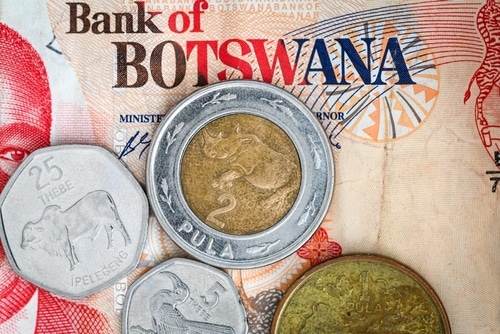The Botswana Pula (BWP), Botswana’s official currency since 1976, has long been admired as one of the most stable currencies in Africa. But what makes the pula so distinctive, and why is it so important to Botswana’s economy? This post dives into the history, features, and value of the pula, its role in daily life and trade, and its significance as a symbol of Botswana’s resilience and economic strength.
Whether you’re planning a trip to Botswana, conducting international business, or simply curious about global currencies, you’ll walk away with a better understanding of one of Africa’s most remarkable currencies.
What Is the Symbol of the Botswana Pula?
The Botswana Pula is represented by the ISO currency code BWP or the P symbol (P) often used as its shorthand. The name “pula” means “rain” in Setswana, the national language of Botswana. Rain is a revered blessing in this semi-arid nation, making the currency’s name a cultural nod to the people’s appreciation of its scarcity and importance.
Fun Fact
Botswana’s national motto is “Pula,” signifying not only monetary wealth but also life-giving rain.
A Brief History of the Botswana Pula
Before gaining independence in 1966, Botswana was under British colonial rule and used the South African rand. It wasn’t until September 1976 that Botswana introduced its own currency, the pula, marking a significant milestone in the nation’s economic autonomy.
The Bank of Botswana issued the first pula banknotes and coins alongside its fractional currency, the thebe, which means “shield.” The release of the pula was also celebrated with public festivities, showcasing its role as a source of pride for the nation.
Why Is the Botswana Pula Stable?
Unlike many currencies globally, the pula has maintained remarkable stability over time. Botswana’s prudent fiscal measures, effective governance, and strategic management of its natural resources have played a key role in sustaining this strength.
Key Factors Contributing to Pula Stability:
- Diversification: Botswana has successfully diversified its diamond-rich economy into other sectors like tourism, agriculture, and financial services.
- Controlled Inflation: The government has maintained low inflation rates, boosting investor confidence.
- Foreign Reserves: Botswana boasts a well-developed reserve fund, providing a buffer against global economic shocks.
The Botswana Pula Today
Today, the pula is widely used in Botswana for everyday transactions, from buying groceries to paying utility bills. It’s issued in denominations of banknotes ranging from P10 to P200 and coins from 1 thebe to P5.
Current Exchange Rates
The exchange rate of the Botswana pula fluctuates based on global economic conditions. While it is pegged to a basket of currencies – including the South African rand and the US dollar – its value typically remains more stable than many other African currencies.
Example exchange rates (as of [insert today’s date for context]):
- 1 BWP = 0.07 USD
- 1 BWP = 0.06 EUR
For the latest exchange rates, consult your preferred currency conversion tool.
Exploring Botswana’s Currency Features
Banknotes
Botswana’s banknotes are not just a medium of exchange; they represent cultural heritage through intricate designs, vibrant colors, and depictions of national icons. Prominent figures like first president Sir Seretse Khama grace the notes, alongside imagery of the country’s stunning landscapes and wildlife.
Coins
Botswana’s coinage reflects Setswana culture, featuring shields, spears, and traditional designs. These coins are smaller denominations, making them ideal for daily use. Burst into conversation with locals by asking about the symbolism behind the totemic artwork. They’ll be happy to explain!
The Role of the Pula in Trade and Tourism
Botswana may be a landlocked country, but its economy thrives on international trade, and the pula plays a key role in sustaining this. Exports like diamonds, beef, and textiles are often sold in foreign currencies like the US dollar, but domestic businesses continually exchange these earnings into pula.
Tourism Impact
For international travelers visiting Botswana, understanding the pula is essential. Whether paying for a unique safari experience in the Okavango Delta or shopping at local markets, cash transactions in pula are convenient. While credit cards are accepted in urban areas and hotels, rural areas often rely entirely on cash.
Pro Tip for Visitors
Keep smaller denominations of pula handy for tipping safari guides, porters, and service workers.
Botswana Pula vs Other Currencies
When compared to other African currencies, the Botswana pula tends to perform well due to the country’s stability and widespread investor trust. For someone transferring money into or out of Botswana, its favorable exchange rate often makes the process smoother and more economical.
For example, the pula’s value against the South African rand (ZAR) is particularly relevant due to Botswana’s close economic ties with South Africa, the largest trading partner in the region.
Why Understanding the Pula Matters
A deeper understanding of the pula reveals its significance not just as a unit of currency, but as a testament to Botswana’s independence, ingenuity, and world-class governance. Whether you’re a business owner, a tourist about to visit Botswana, or someone looking for investment opportunities in Africa, keeping an eye on the pula’s performance is a smart move.
Making the Most of Your Money Transfers
For anyone sending or receiving money in Botswana, exchanging to or from the pula is seamless with the right tools at your disposal. To avoid hidden fees and poor conversion rates, look for trusted services that promise transparency and security.
Are you transferring funds to Botswana or anywhere else? Make every transaction easier, faster, and safer with Remitly today. Sign up now [insert link] to explore low fees and great rates.
